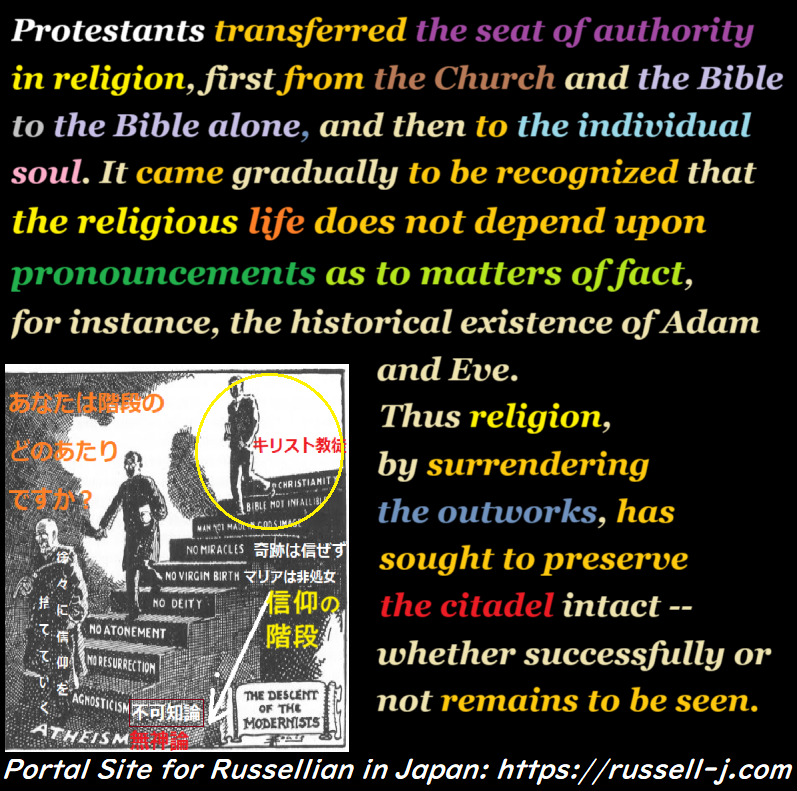
 ラッセル関係電子書籍一覧 |
Source: Religion and Science, 1935, chapt. 1
More Info.:https://russell-j.com/beginner/RS1935_01-070.HTM
* a brief comment:
In Western countries, there are many people who believe in Christianity, but the degree of their faith varies from person to person. Some have even become atheists or agnostics. The attached image visualizes the varying levels, or stages, of Christian faith as a "Staircase of Belief," and it offers much food for thought. At the top of the stairs stand devout believers, and as one's level of faith weakens, one metaphorically descends step by step.
Losing belief in miracles, which are regarded as essential in Christianity, means descending significantly on this staircase from the standpoint of being a Christian. For instance, if one can no longer believe in the doctrine that Mary, the mother of Jesus, was a virgin, that marks a step down in faith. Eventually, if one comes to reject all the central doctrines of Christianity and ceases to believe in the very existence of God, one becomes an atheist. On the other hand, those who claim that neither the existence nor non-existence of God can be proven are called agnostics. Bertrand Russell stated that he was an agnostic in theory (as a philosopher of logic), but in practice (as an individual), he was essentially an atheist, and I share that sentiment, though I have never been a Christian myself.
In Japan, belief in monotheistic religions is rare (note: Christians make up about 1% of the population), and polytheistic beliefs and a natural-religious sensibility are deeply embedded in the culture. Buddhism is widely accepted in a formal sense, but in reality, it often functions as what is called "funeral Buddhism", appearing mainly in ceremonial contexts such as weddings and funerals, rather than in daily life.
When someone who claims to follow a particular religion is repeatedly questioned about its doctrines or creeds from a theoretical standpoint, it may sometimes happen that they themselves become uncertain about what they actually believe. Of course, a religious authority might respond with, "Just believe, those who believe will be saved." However, such an attitude suppresses questioning and doubt, and prioritizes obedience over thinking, something that, in my view, bears a resemblance to the spirit of militarism once seen in the Japanese army.
* Amazon Gift Card
